Do credentials matter?
Hi friends <3 How’s it going? Hope you’re having a great night <3
I loved reading about your morning rituals! For those of you who asked, here’s what today’s to-do list looked like:
[I just bought a new notebook and left it in the car, so today was on a scrap piece of paper]
It’s funny because as much as I use technology in everyday life, I can’t get on board with electronic to-do lists. Paper works for me! I can see it all the time and it’s a great constant reminder of what I need to do. I use my iPhone calendar for appointments and that’s as fancy as it gets over here 😉
Some eats!
Lunch was a beastly salad with:
-mixed greens
-organic raspberries
-goat gouda
-balsamic dressing
-sea salt and pepper
egg puff on brown rice bread + nutritional yeast
During my lunch break was a little cray cray, since I had to shower after Zumba, eat lunch, and prep dinner so I could have a little more down time tonight.
It was totally worth it and now the Pilot’s enchiladas went from fridge to oven, all I have to do is put a couple of last-minute things together and dinner will be served 🙂
Here’s the reason for the lack of Fashion posts this week:
It’s been a little less-than-fashionable over here 😉
Afternoon snack with a goat’s milk yogurt with half a Larabar crumbled into it:
So something I thought might be interesting to talk about tonight is the importance of credentials.
When I was writing my first book proposal –I’ve written three, all different- the major point of resistance I faced was the fact that I’m not considered an “expert.” There are thousands of people out there who can get a nutrition or personal training certification, but that doesn’t make them an expert by any means. So while I did hold a few certifications, the publishers I spoke with wanted to see me as a Registered Dietician or Exercise Physiologist before allowing me to write a book on healthy living.
At the time, I was kind of let down (and also once-again doubting the reason why I earned a degree in Finance), but now I totally see the point.
And I have similar feelings when I read websites.
I read a lot of websites, many of which include fitness and nutrition information. Many of the people who write them have no certification whatsoever in the fields they’re discussing. Sometimes the information is dead-on, because it was well-researched or something that works for them in everyday life, but some of it is absolutely incorrect. This worries me because unlike a website about fashion or home decor (which really isn’t inherently affecting the internal functioning of one’s body), fitness and nutrition advice affects our health. And following poor advice can affect it adversely.
The thing is, any joker can get a personal trainer cert and use the certification irresponsibly. Remember studying for a test in High School to almost immediately forget the information you were tested on as soon as the test was over? Well, that happens in the fitness world (an possibly many other fields) all the time. To me, a certification is important, but not the end-all-be-all. It says that the person is dedicated enough to study required information, pay a hefty amount of money (financial attachment to things like this can sometimes make them feel more meaningful), and participate in continuing education.
Obviously, it’s up to the readers of these websites to use their best judgment with how they want these things to influence them, and also to do their own research.
But,
how important are credentials to you?
Is it something you consider, or do you take what you read with a grain of sea salt?
I’m excited to hear your thoughts <3
Have a great night!
xoxo
Gina

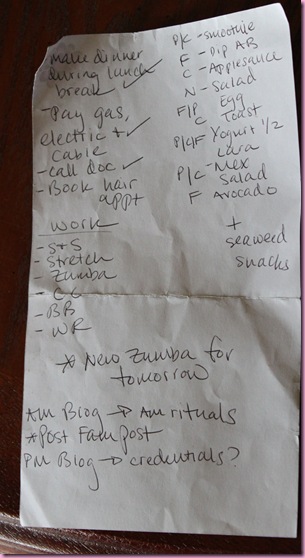
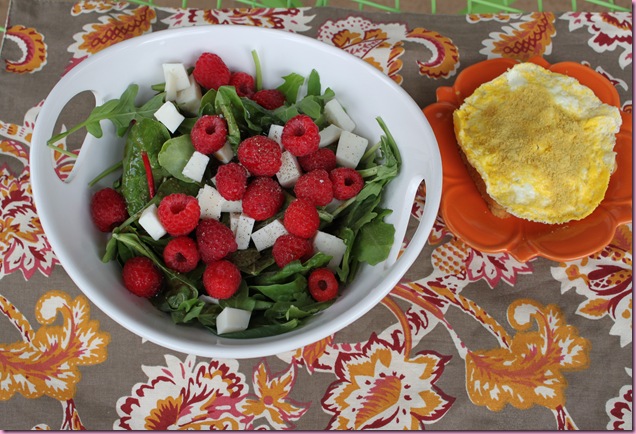
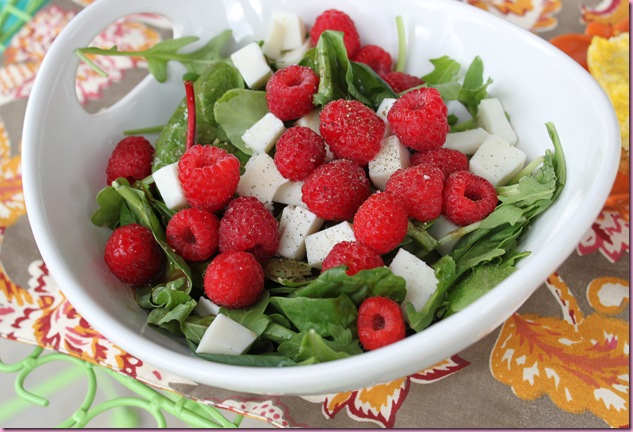
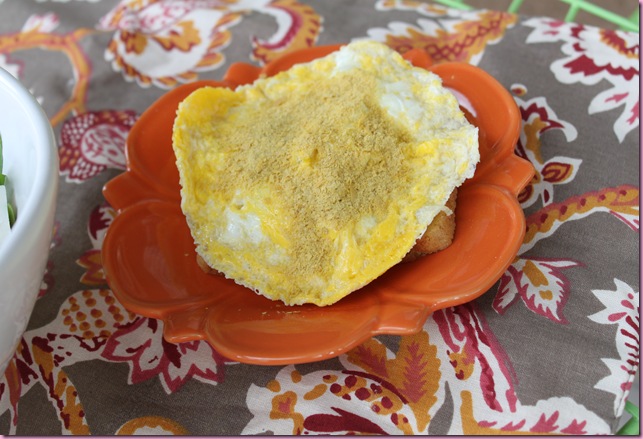
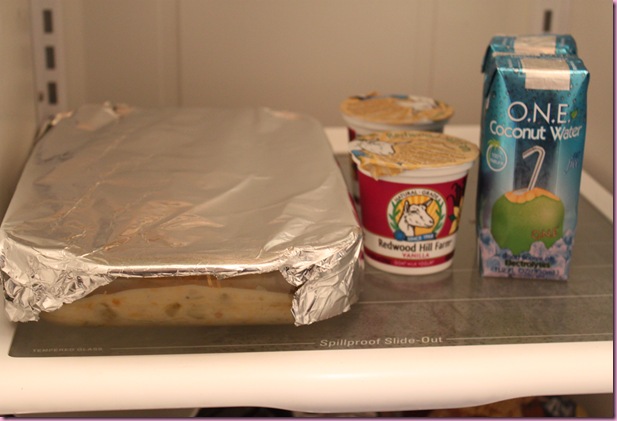
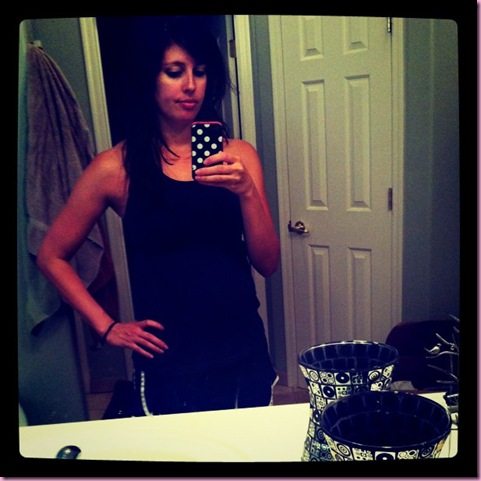
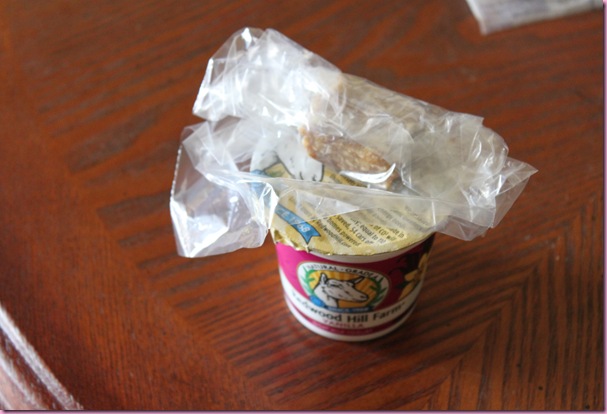
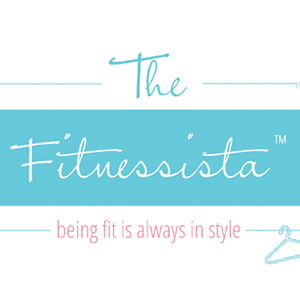

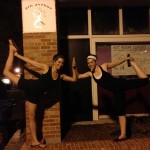


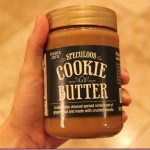







I have a major issue with it personally – I have a degree in Human Nutrition, Foods and Exercise with a focus in Dietetics. I didn’t get my RD because I started working for the USDA. I used my knowledge everyday, and despite the fact that my passion in the kitchen is baking, I do it once maybe a week. I LOVE nutrition, but when I moved to CA I couldn’t get noticed for my degree and experiences because I DON’T have R.D. after my name. So I settled into a random sales job until I figure out how to make my way back into the world of nutrition. :-/ I get a little irked because someone with a health coaching certification can get a nutrition job when they don’t necessarily have the background in metabolism, nutrition for specific conditions, don’t provide completely factual (mostly opinion based, completely unhealthy and potentially harmful) information on their websites, etc. This is kind of a hot button issue for me right now and I appreciate you bringing it up.
Wow, Kristen, that’s awful! Your degree sounds excellent to me.
I think it depends on the person. Danielle Laporte said that your passion is your qualification, and in many fields I think this is apt. However, I think personal responsibility of the user of any service is the most important thing. A doctor is qualified, but they just dish out antibiotics, which don’t always get to the cause. I go to who I feel inspired by and who feels right to me; I enjoy reading others perspectives and discoveries without caring if their qualified, so long as they portray it as their experience. Also, if someone has achieved what I want to, I would still seek their advice, qualified or not.
Thiiisss!
I don’t agree with your generalization about doctors at all. Or maybe I just don’t understand it.
With that said, as far as health & nutrition go, credentials are very important to me. I don’t think that passion (with no credentials) is enough for these topics. I have a master’s degree and a doctorate in a health field, and in the job I work in, I work with and am surrounded by highly credentialed individuals. I read lots of healthy living blogs for recipes & food & exercise ideas. When I start reading health-related advice or information on these blogs, I generally tune out or skip those posts. (I especially don’t like the posts or the attitude that bashes Western medicine in a generalized fashion.) I really can’t help it – is just in my training to be skeptical of health-related opinions or anecdotal advice from those who aren’t credentialed.
But – I am not the same with exercise advice. I feel like that if some one has a personal trainer certification and has experience training people then that’s good enough for me….probably because anyone with that level of training knows more than me!
Everyone is different! I love your blog, Gina!
I have a huge problem as a blog reader reading rubbish from some, certainly lovely, intelligent, bloggers but they are in no way certified to pass judgements nor decipher scientific studies (all the worse when they don’t even read the original). I don’t understand why certifications exist in real life but if you’re a blogger it’s a total free for all when it comes to evaluating/discussing exercise and nutrition and pushing it out there. It’s not okay, y’know? ((It also discredits people who invest their time and money in professional qualifications etc…and this is their career.)
Credentials are important to me, esp. since I’m hoping to pursue a degree in Nutrition and become an RD, and I’ve done some research about what RDs do and how a lot of people can call themselves “nutritionists” but they don’t really have the training to counsel people on nutrition.
I’m a firm believer in doing my own research and not believing everything I read, so I can’t say that credentials are super important to me. I filter what I hear and read no matter who says it or what their credentials may be. Personal responsibility!
This is such a great topic! I remember your fitness trainer story when you left your department store job that you weren’t happy in, did a rush-job quickie type certification program in order to get your trainer credentials and even tho you may not have had the “best” credentials from, as the years went by, you became an extremely competent trainer.
You went from credentials on paper with no real world experience
To tons of experience with not the most “amazing” credentials from the highest regarded place but had tons of real world experience. (I am paraphrasing what I remember your words to be as you described things in that post)
So you are actually a walking case study of both sides of the coin! Which is pretty awesome!
I think credentials matter, to a point. You can have a trainer with credentials from the best places, but they suck, when it comes down to it, in the real world and with training clients. Or vice versa.
It’s all so individual and case by case… GREAT TOPIC, Gina! 🙂
When it comes to bloggers, it’s all about establishing trust. Sometimes that is through credentials but other times it can be because someone has had healthy weight loss success in her own life, has similar fitness goals to me or is just interesting.
Good topic—I think another thing about the link between credentials and blogs is that since people often tell their opinions like “facts” …major rumors and misconceptions can start (sometimes I cringe when blog reading–people follow bloggers’ advice). It’s a big responsibility that you seem to handle extremely well. You always make sure to say when you’re just telling your opinion, and recommend people ask their doctors. Plus, you talk about the origin and benefits of (science behind) the information if it is potentially going to be followed. Now, I don’t think people actually do follow up with a doc, but it’s their responsibility to. I believe you can be extremely knowledgeable without a certification, but it is not necessarily the case for everyone. That being said, trusting info from an “expert” can steer people wrong too, it just might be slightly less likely. It’s easy for me to stand behind the certification—I have tons of certs and a Ph.D. I don’t think of myself as an expert until I talk to someone about a topic I know about…and they think they know about it, but are wrong. It happens a lot in the area of nutrition and fitness. Additionally, I encounter clients who are making lifestyle decisions based on bad advice from unqualified people (often, friends). It’s hard to undo. That being said—I still think it’s absolutely possible to know a ton and be an expert without having a degree in the area!!
So maybe what you need to do if you want to write a bestseller and have it published is to team up with someone like me 🙂
I always do my own research and take everything with a grain of salt, especially when it comes to blogs. I love reading peoples opinions but most of the time, that is what they are, opinions. So I always do some follow up research if it is a type of exercise or fitness regime that is new to me.
I like to post my own fitness routines on my blog but never thought to put a disclaimer and definitely will.
OveLoves
I’m pretty proud of my RD credential and get a little annoyed by self proclaimed “nutritionists”. Registered Detitians go through hours of schooling, clinical training, and have to past a nasty national exam to get the RD credential, so we put in a lot of work! Either way, you’ll have people who give great advice without any background and those who are highly educated that still mislead people.
Amen : )
My biggest problem with self-labeled “nutritionists” is that their opinions/recs don’t seem to be evidence based. People want to do their own research and learn about nutrition. But, their research generally takes them to the internet where anyone can make unsubstantiated claims. Reading about nutrition on someone’s blog is not the same thing as reading the actual peer-reviewed research on it, but a lot of the general public considers it the same. As an RD when I talk about specific nutrition I tend to say “Hey, this is what the research is saying right now.” or “Maybe their is a link, and it seems to be the case anecdotally, but no one has managed to demonstrate it during a study” or “Sure this study links heart disease and twitter usage, but here are the major problems with the study design.” If I make a recommendation on my blog, I’m going to cite studies!
I’m a nerd. But dammit, I have earned my nerdiness!
I love this! I think your approach is awesome! I’m going to start using some of those lines.
I’m in the same boat as you… wishing I got a degree in fitness instead of business. I think it’s important for consumbers to look at where the info is actually coming from, not just believing everything they here. Credentials are important, like if my doctor wasn’t licensed that would be strange, but they aren’t everything in certain areas.
What a great topic. I think credentials are important because the source of the information can be trusted a bit more. I noticed there are many people who get hired to blog for fitness magazines and such, yet they are just known to be free lance writers and everything from their own experience. I never take their information with a grain of salt. Even when it comes to posting recipes and stating these are healthy.. they are using 100 calorie items, pairing it with something fat free/low fat etc. Then people who have no idea of working healthy eating is, thinks that is healthy. I guess that is all about marketing and getting people sucked in, huh? I should know, that is what my degree is in!
I’m planning on becoming a personal trainer within the next year. My boyfriend is going through another deployment and this time to Afghanistan. I am moving back home with my family and I need to get out of my rut and just DO what my heart desires. I already have learned so much on my own and through others who are credible sources, that I can’t wait to apply that to my own training. I take everything I love with a lot of passion and I plan to do that when I study for my certs for PT.
I think that credentials can be deceptive, partly because so many health/healthcare consumers don’t understand them. I am a physical therapist and have a clinical doctorate degree (DPT – like a dentist doctorate degree, not like an MD) and sometimes patients are unclear as to our scope of practice. But here is where I am really going with this…I have a huge issue with personal trainers calling themselves PT’s. I feel that in a world where patients are already confused about roles, this just makes it more unclear who is who. That said, I am thinking now that we as physical therapists probably shouldn’t go by PT either, as maybe neither profession should be adding to the credential confusion.
I actually have a HUGE issue with it personally. I am a licensed nutritionist and yet I don’t act like an expert because I’m not. I have worked with a lot of clients and have helped a lot of people but I don’t claim and never will claim that my way is the only way. I get so ticked off (and I am putting that NICELY) when I see some bloggers offering the dumbest nutrition advice and all these followers just eating it up. I also get really ticked (again putting that SUPER NICELY) when blogger get book deals to write a Healthy Living book when there ONLY credential is that they write a blog. Really? That’s all it takes. Someone has some successful blog filled with (50% inaccurate information) and they land a book deal for young and impressionable girls to read and eat it up. Obviously you’ve hit a nerve with me. I just get so irritated because like you said…this isn’t writing a book about fashion or home decorating we are talking about a topic (food and exercise) that has the potential to really be damaging to some people. But whatever…in the end it is all about money. Money for the book publishers, money to the blogger and who really cares who it may hurt right?
Credentials don’t make the expert. What makes the expert are the credentials plus the life experience and research behind their recommendations, suggestions and opinions. I have my MSW degree and that alone has not given me the respect I have from colleagues and others, it is my experience and demonstrating the knowledge I have.
As for books and whether I gravitate toward credentialed experts or not, it depends on the topic. For health and nutrition advice or self-help type books, I prefer someone that has the credentials plus life experience. I will purchase such a book when I think that person (or group of people) know more than I do from my own life experience. I also purchase books about health and nutrition if it’s more of a biographical account of someone’s success and what has worked from them. I might look to that author as someone to learn from, but not necessarily health & nutrition advice I want/have to follow… just as a perspective to learn from.
As for bloggers, I seek those who have interesting opinions, thoughts, recipes, stories, etc but more importantly great ways (overall aesthetics of the blog as well as writing style) to present those items. Bloggers are people with a forum to share their thoughts and ideas and life experience from which those of us that read it can relate or benefit. I don’t see all bloggers as experts. I follow some due to their entertainment factor, others because I like the knowledge they share, others because I love their recipes and others for the interaction between readers of the blog.
I couldn’t have written my own response better than this. I don’t view the bloggers whose blogs I read as “experts” in anything; rather, I view their experiences/recipes/workouts as an alternative that I can try, too.
I also have mixed feelings about the credentials debate. I’m currently a grad student, and by no means do I consider my future Master’s degree to validate that I am an expert in anything—my education PLUS my life/work experience and continual training are what will eventually get me there.
I think you definitely need to take everything with a grain of salt, especially in the blog world where you read so many healthy living blogs from people who care about living healthily but what works for a blogger might not necessarily work for me. I love reading blogs but if someone gave advice which I was considering taking, I would be sure to double check and do my own research first. Healthy living blogs are great for inspiration but it’s like you always say – different strokes for different folks!
As far as credentials go, I am not sure how I feel. I am currently studying for the CPA exam, so they must mean something to me, but at the same time, I love reading stuff like yours for advice, etc. However, its one of those things – health and fitness – where cookie cutters don’t work, so different things work for different people, you know? And someone with a lot of education around that has more ideas or experience and can figure out what works for different people?
I take EVERYTHING with a grain of salt. Even among doctors, nutritionists and exercise physiologists, people have differing opinions. I do think it’s important to seek out professionals with degrees; however, there are so many different approaches to health and we can never know what’s truly best for us. What I do is a combination of expert advice, research and what I’ve found through trial and error works best for my body.
That being said, I do think that everyone who doles out any kind of advice on health has a responsibility to make sure their claims have research backing them up. We may not always be correct, but there’s a huge difference between being dead wrong and just being questioned.
i agree w/ this 100 percent.
This is totally off topic, but if you haven’t already, could you do a post about the different ways you cook your eggs? 🙂
sure! 🙂
i definitely take what i read with a grain of salt. i know not everything i read is going to work for everyone. but it lets me relate to someone who might be on my level, but i adapt to what works for me.
But it’s one of these things — if someone has the credentials, they might still not be knowledgeable in that topic, especially trainers. I think trainers – i have to take what they say with a GREAT big grain of salt! half the time i think it’s nonsense! the other half, I think, hmm maybe.
Credentials mean less and less as I continue to educate myself. I see so much flawed information out there, even from these self-proclaimed “experts”. I am the type of person who will read something and then further research it before acknowledging my own understanding and opinion on the topic. I am a Certified Health Education Specialist.. all it means is that I have a degree in health education and I paid way too much money to take a painfully long test.
On a message board that I frequent there is someone who markets herself as a “Certified Fitness Coach”. It is shocking how little she knows about fitness and nutrition! She is admittedly obese, refuses to acknowledge that she needs to exercise for harder/longer duration, and always wants the easy way out when it comes to nutrition and weight loss. Certified Fitness Coach, thanks but no thanks.
Credentials are nice, but experience and passion tend to make me more of a “believer” in a certain person. Fitness and healthy eating are very important to me, so I’ve spent years learning about them. Because of that, I think I’ve developed a pretty sharp BS radar. No offense or anything, but when someone talks about “toning” I have a tendency to classify them into the “Don’t know diddly-squat” category. In other areas that I’m not as familiar with, I will listen but try to remain neutral. I basically rely on my instincts and experience to tell me whether someone is full of it or not.
I think it credentials are beyond important. I work as a nurse and have taken two intense research classes and it’s amazing how even professionals can read into a study and determine it scientifically significant when it was in fact, not. I hate HATE reading on other blogs that “according to this study…” because unless they understand the validity, do a content analysis, or even understand what a chi-square test is then they have no business presenting to their readers who, as we all know, will take it to heart and live daily by it. I personally would never pick up a book written by a blogger, or anyone else who doesn’t have the the credentials to back it up, You could really be setting yourself up to some liability issues.
exactly! I had to take like a billion research methods/stats classes, so I feel like I can interpret the validity of research. I’m not just reading the summary on yahoo or something, I’m in PubMed reading methods.
What a great question!! I think generally, credentials are important, but even if someone has excellent credentials, their recommendations can still be bad for lots of people (like Adkins, a medical doctor whose diet is total baloney). Experience is also important; if I ever hire a trainer I might not pick the one with the fanciest degree over the one who’s been coaching (and maybe even competing in lifting competitions) for the longest time. And finally, nutrition advice in particular needs to be evaluated in light of conflicts of interest, which can be rampant (like the dairy section of the food pyramid; no one thinks you’ll drop dead without 3-4 daily servings of low fat dairy, but the dairy lobby sure wants it to be there).
Girl, those boneheads wouldn’t know good nutrition advice if it fell out of the sky and hit them on the head. Bethenny Frankel doesn’t have an RD, she has a culinary degree. Didn’t stop her from starting a Skinny Girl Empire.
Jillian Michaels has a lot of fitness and she writes books about eating and gives diet advice. I can’t find that she has an RD or a nutritionist cert.
Jorge Cruise is a fitness instructor and he’s written a bunch of diet books and was featured on Dr. Oz. But I can’t find nutrition training in his bio either.
Not to mention the bloggers out published books without having nutrition credentials. PLUS the experts write diet and fitness books all day long and they don’t work! You have a sensible approach that would work for any busy woman.
So ignore those idiots who want to tell you why you can’t achieve your dream and find the people who did what you want to do without credentials. You’ll find your niche market and the publisher who believes in your project. Don’t give up!
Mostly I take what I read with a grain of salt, but then again, my purpose for reading blogs and writing my own is entertainment, not “medical” or fitness advice.
Can I just say how fantastic those raspberries look????
As an RD, I really think credentials matter- I feel so bad for clients when they come in after following some horrible advice (and failing) from someone with a “nutrition certification”. That’s not saying they’re all bad, it’s just easier for people to be confident with advice from established experts. I also think they’re important because I was a certified personal trainer in college- I took the course, studied, passed the exam. But I never trained a client because I didn’t feel qualified- I felt like I’d been handed a free pass to work out with people- I wasn’t anywhere near an expert.
I never make health decisions based on one person’s point of view (even doctors). I think people just have to be aware that there are so many different ways of doing things and we should research our options before following what one person says.
As far as the blog world goes I love getting inspiration for workouts and eats from the blogs I read. But that is what they are “inspiration”. If a workout or strength move doesn’t totally make sense or it just doesn’t feel right–I just don’t do it. I think there is a certain point where it becomes the readers responsibility to be smart! Plus, I think all of the blogs that I read have disclaimers all over the place stating such things! 🙂
What a great point about credentials! It’s definitely not all cut and dry. I hold myself personally responsible for what I do with the information I read (or hear). And for what it’s worth, I would read your book any day, since it feels like you put your heart and soul into sharing all this great info on your blog and hold a genuine concern for the well-being of your readers! 🙂
P.S. There is a book called Legal Guidelines for Unlicensed Practitioners by Lawrence Wilson that you can find on Amazon. It is a pretty quick read, and I found much of the info very valuable.
thank you!! hope you’re doing well- i need to come take a class again sometime soon 🙂
For sure! Can’t wait to see you! FYI…we changed our schedule a bit, so check out the website (www.canyonfit.com) for class times. 🙂
I think a lot of it is readers and markets. You either have to be a really well know “ celebrity “ to have someone pick up your book, or an expert. A celebrity expert is even better…. just thinking sales wise.
You could be certified personal trainer and fitness blogger! I think you should work on increasing blog readership and reaching non-blog reading people by maybe doing some freelance pieces before trying for a book. That way you can build up slowly and become more well known to show publishers and readers that you have experience reaching the gen. public and that you are a known figure.
i really want to do more freelance work, but have no idea how to get into it. off to research… 🙂
I take absolutely EVERYTHING I read with a grain of salt. Even if it’s a blog that I trust, I don’t take it at face value. I find more information to back them up before implementing advice. However, I also know that there is a ton of mumbo jumbo in the nutrition and fitness world that is based on monetary connections (advertising, etc). I feel that bloggers don’t always have these pressures and can speak more freely.
This is a timely topic because I have been thinking about it a fair amount recently. You have been putting out weekly workout, which readers have been following. This makes sense because you are a certified trainer and you currently are working full time as a trainer/fitness instructor. In addition, before each one, you remind readers to check with their doctors. I have noticed that some other bloggers have started to copy you by putting out workouts. But at least one of them has absolutely no fitness experience whatsoever, other than taking classes at the gym. Not only is she not certified in any way, she hasn’t taken classes or anything and I personally find it a little appalling.
Last year, I bought the training materials to get cetification from one group that does that and as I started going through the book, I realized how little knowledge is actually necessary to get certified. So clearly, certification isn’t everything.
Unfortunatley, I think a lot of blog readers don’t necessarily weigh these factors or think about them. They just see a workout/nutrition advice/whatever and think “hey, I will try that”.
This post totally hit home for me! As an RD, I DO look for nutrition information from fellow RDs because I know the knowledge, passion, and commitment that it takes to add those letters after your name…it isn’t easy folks. However, just because I’m an RD doesn’t mean I “know it all”…I also like to hear advice or ideas from non-RDs as well. We can all learn from each other, and some of the best ideas/advice I’ve gotten over the years hasn’t come from a research paper, but from a health conscious friend who incorporated great nutrition into their own life.
Major props to you for disclosing time and time again that you AREN’T an RD/exercise physiologist but this is simply what works for you (and your ideas/workouts ROCK! I have gotten major inspiration from you). I have a major issue with people who don’t do this; I don’t dole out fitness advice, life advice, whatever to my clients or patients before stating that, hey, I’m not an expert in this field. I just like people to be upfront about their knowledge and background and then you gain my respect and attention.
Again, fabulous blog! You inspire many and are honest and real. Keep it up!
I think it shouldnt matter. Look at other bloggers like Tina or at Carrots N Cake. She wronte a book, but no creditials and has it selling at big name bookstores and Amazon. People should read what they enjoy/like, that is why there are so many options in book stores to choose from today. People read magazines like Star or US Weekly to see what a certain celebrity does for fitness/exercise/diet, but they are certified or have a degree.
You should write your book and continue pushing it to publishers because your blog is great and people can relate to you!!!!! GO OUT THERE AND GET THEM TO PUBLUSH IT!!!
I definitely think credentials are important—that’s part of why I’ve been busting my ass to become a registered dietitian when I could have just gone with an 18-month nutrition certification. 4 years in grad school was not the original plan but it feels like the right path. I’ve learned so much through my science and nutrition courses and volunteer work. It’s shown me how important it is to know what you’re doing when someone’s health is in question. The body is so complex, and while some things are pretty basic, I think it helps to know what the big picture looks like so you can explain it to someone else. It would be hard to get all of that in a short program that doesn’t include any supervised clinical practice.
I’m sure there are plenty of people who aren’t so-called “experts” but are much better at what they do and have a lot of experience to draw from. Deep down, though, I do think it’s good to draw a line regarding credentials in certain settings like hospitals and books or websites people might turn to in lieu of visiting a health care provider. I feel like there’s a lot of gray area though and plenty of exceptions.
PS—I love your blog and your “this is what works for me” approach. I wish more bloggers and writers would put that right out there. If anything, it adds to what you have to say : )
I think credentials are important, but they’re not everything. Experience can make up for a lack of credentials, in my opinion. You have tons of experience and I know you have awesome advice. So just keep on pushing at it Gina and I KNOW you’ll get a book published. 😀
Wearing a baby belly is always fashionable! Nobody will even pay attention to what you’re wearing 😉
Actually the credentials issue does worry me, but from a different side of things. As a journalism major, I feel that you can research and present your readers with accurate information with out being an expert in the subject matter. The key is to have several reliable sources for your information. What bothers me is that most bloggers have no training in journalism or writing. When I see lots of typos or lots of claims backed up by little to no information that bothers me because it shows a huge lack of ethics. I also don’t like it when bloggers aren’t transparent about freebies that companies throw their way. As to a blogger not having credentials in health or fitness, I think its up to the readers to take some personal responsibility. But bloggers should definitely not just throw their opinions out there as facts.
I think if you don’t have any credentials it’s important to either do your research or speak from your own experience only. I make it known I only speak from my own experiences and personal knowledge, but I definitely don’t talk about anything I know nothing about. While it’s obviously important for the writer to watch what they say, I think it’s important for the reader to be cautious about how they take the information. Don’t just take anyone’s word for it.
Love this question. I pretty much feel the same way you do: the credential is just a starting point. As a consumer of someone’s expertise, I feel I still have my work cut out for me deciding amongst the credentialed, who is actually on-point and committed to their line of work. I DEFINITELY think this is a matter for all fields. I feel this way about choosing doctors, plumbers, any kind of consultant. Just because they have the med or plumber’s license, doesn’t mean they’ll do a good job or keep up to date with their professional development.
Just a side note: doctors, dietitians, nurses, etc. HAVE to keep up with professional development/have continuing education to keep their cert. Ususally it’s a specified number of hours or courses per year that have to be proven and documented by a test, paper, or other means. However, I can’t speak for a plumber haha 🙂
Yeah, true that they are required to keep up certs, but if you are really committed to your work you’ll do more than just log the hours. You’ll read your field journals, attend conferences, and go to every training you can just because you want to be as informed as possible. There are alot of professionals who just clock time, and I’d rather sift through those and find the gold who really cares! (PS yep plumbers and electricians have their own requirements to maintain their license. I don’t think it involves going to lectures though! But you don’t just get the license and thats it. )
Great post Gina! I can always count on you for not only fitness and nutrition inspiration, but for thought provoking discussions too. 🙂
To me…credentials matter. Sure there is a lot of gray area, but as an RD myself, it has even more significance to me. Studying for multiple years, investing thousands of dollars, earning all A’s to get into a supervised clinical internship, (and finally) passing my registered dietitian exam was NOT a walk in the park. Obviously it meant a lot to me and was my passion so I went for it. With that said, I look for credentials in the media (especially!) because most people with an “RD”, or any other credential, have worked so hard for it that they take great care to not just “put anything out there” and are more careful about the advice, information, etc. that they disclose to the public. The reason being? After all my hard work, I don’t want my credentials taken away because I acted irresponsibly and gave false information to a media outlet or published it in a book, magazine, etc. I make sure my sources are extremely accurate, my studies unbiased, and my information sound. I want to keep the respect of those in my profession and the general population as well.
Don’t let the book publishing sitch get you down…instead, use it to get inspired and go after a credential that perhaps you wish you had done. I may not know you personally, but I don’t think many people that read your blog would disagree that you wouldn’t make an amazing RD, physical therapist, exercise physiologist, athletic trainer, etc. Show your adorable husband (and your future son) that you can do it! I remember a quote I read in your blog once: “it if were easy, everyone would do it.” This applies to school as well as marathons, being company CEOs, etc. Get it girl! 🙂
Credentials are important because they begin to build that first level of trust. & creds are not an automatic safety net that excuses a consumer from doing their own research, even though a lot of people like to think of them like that. My husband is an IT Specialist & while certifications are important & look good, if you don’t have the experience/knowledge to back those up, it won’t take any time for your clients, bosses, etc to see that you are not a complete package. Creds get you in the door, your experience/knowledge will back you up & I could understand why a publishing company would want someone certified before they published a book of advice about the subject. I trust your advice because I’ve been following your blog for years but if you were someone else, I’d want to know why I should trust you at all & a certification could possibly open that door. It’s like with any other service: tree cutting, plumbing, other home repairs – you may know what you are doing, but a certification would make me more likely to hire you.
I’m truly obsessed with to-do lists and have recently gone digital actually. my lists are all on wunderlist and my life revolves around the app on my iPhone and the one the computer! How sad!
curious- what are the letters next to your food? I looked through your repsonses to see if you had commented already!
As a registered dietitian, I feel they are very important. I think in the blogging world bloggers should have disclaimers on their sites explicitly stating that they are NOT RDs, not just ones that state they are not giving medical advice (HTP has a wonderful one). At the same time, the responsibility lies on the reader, not the blogger. It’s more irritating to me when ! see a ‘nutritionist’ on TV – the other day I saw Robin Miller on a morning show as a nutritionist, giving dietary and nutrition advice. She’s a cook. While she might have said things that are accurate, it downgrades what I do as a registered dietitian. But again, that responsibility is really that of us RDs to make sure that credential is advocated for and held to be the standard when it comes to nutrition therapy. Anyone can read a book call themselves a nutritionist, there are no regulations that exist anywhere for use of that label. On the other hand, I have a bachelors degree, went through an structured, credentialed internship, passed a national registration exam and am licensed in my state of practice. I am a nutrition expert, and can prove it by calling myself a registered dietitian. That means something. I hate the term nutritionist, because it means absolutely nothing.
And I totally use paper to do lists too! I could never use an app or electronic list. I need to physically cross things off. Sometimes when I’m halfway through a list I’ll make a new one, just to be able to cross things off twice.
LOVE to-do lists! and yes, mine must be written on paper too. nothing like crossing something off the list.
you may have already done this but maybe you could do a fashion post on workout clothes. you always look cute in yours and i know i like to look decent while working out (without spending a ton). just a suggestion 😉
I think it depends on the job. I’m a teacher and I think credentials are super important- kids deserved someone who has been trained!
There are SO SO SO many books out there written by “so called experts” with no credentials. I think what the publishers are feeding you is a load of bull. Jillian Michaels, that Jorge guy, and is Kathy Freston an RD???
Random fact–Steven King’s “Carrie” was rejected like a gazillion times. He threw it in the trash and his wife dug it out and it finally got published like years later…and look how successful he is now! Keep trying. Look how huge and successful your “little blog” as you modestly say has grown! You are very fair and never tell people what to do. Sharing your thoughts is obviously many people come back to read so someday when you do get published they will be lucky to have you!!!
I am a certified trainer (for 8 years now). When I first got certified I had no idea what I was doing as far as “hands on” training. I didn’t feel comfortable training anyone…and gyms actually wanted me to dive in and I REFUSED! I worked for a Sports Rehab doctor at the time of my cert so I had some knowledge of anatomy and corrective exercise but wanted to learn more hands on before I trained a client. I then got a job working for a PT and Exercise Physiologist Degreed Trainer and shadowed them. I started out learning about injury’s and so on so I consider myself a more careful trainer…than the ones that just “kill” their clients.
I am knowledgeable in nutrition and went to school to be an RD but never followed through for personal reasons. I have since gotten a few certs, but never, ever deem myself a nutrition expert and I would never write a diet program for a client. I will, however, coach them to make better choices. As a fitness professional I think it’s important to have a network of professionals to refer to. I often consult RD’s and Physical Therapists. I wish I could afford to go back to school to get a degree in Ex Phys or Dietics.
On the other hand…I have known people with a degree in Ex Phys (my brother who recently graduated & doesn’t have experience working with people one on one and even asks me for advice about his personal workouts) and Dietetics that have some to me for advice in areas! I think it’s a mix of credentials and experience and knowing how to separate the good, the bad and the ugly information out there!
As far as blogs go…I think bloggers should disclaimer their credentials, but readers should read at their own risk and never take what they read on a blog as medical/expert advice.
Wow…long winded comment here. 😉
I write a health and fitness blog, but I make it clear that I have no credentials! I follow a range of blogs – some of the bloggers are certified, others are not. My goal is competing in a figure competition, so I look towards those that have achieved similar targets – it doesn’t matter whether they are a trainer or not. At the end of the day, I’m going to trust the advice of my coach more than anything I read on the internet.